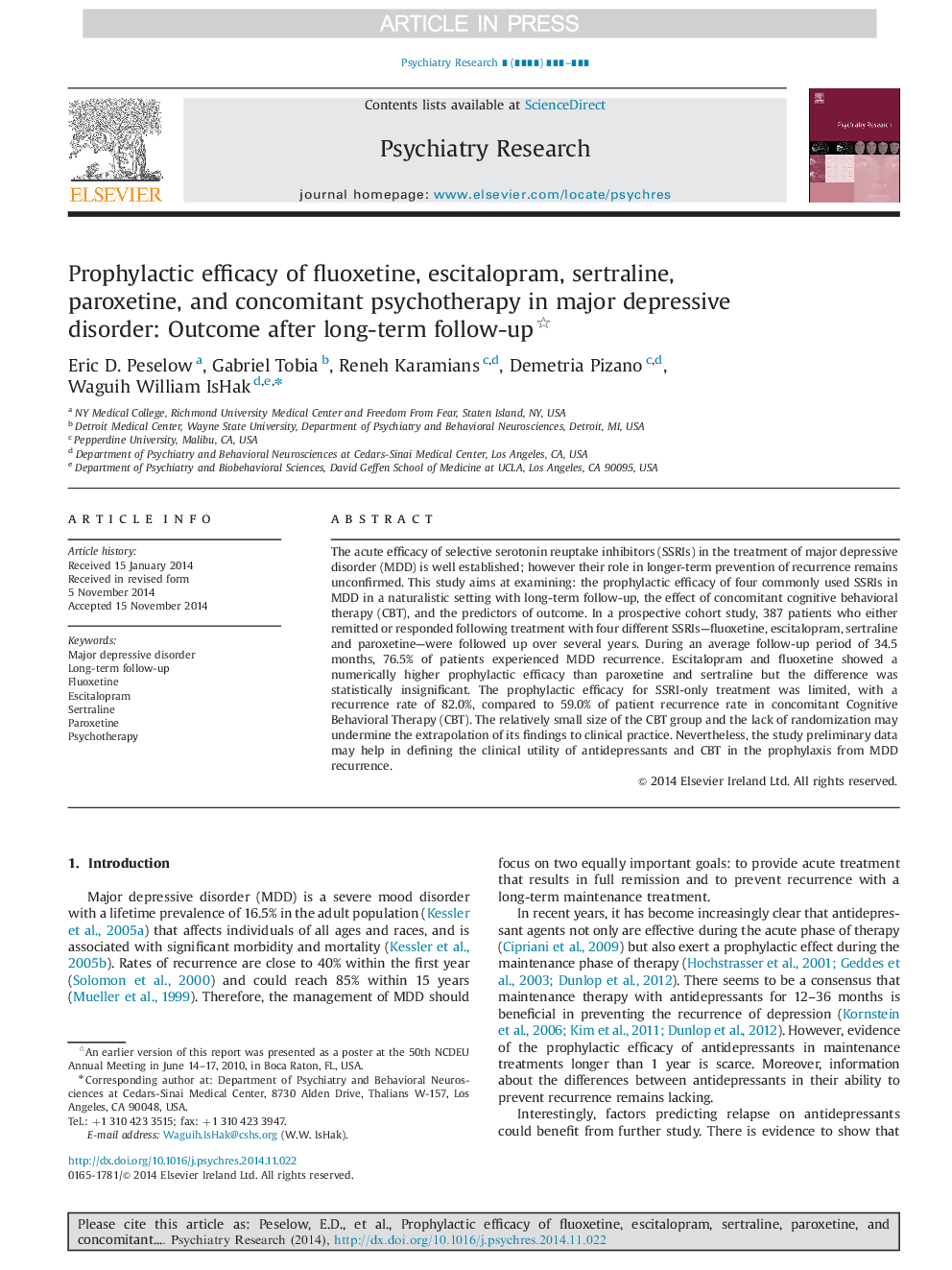| Article ID | Journal | Published Year | Pages | File Type |
|---|---|---|---|---|
| 10304200 | Psychiatry Research | 2015 | 7 Pages |
Abstract
The acute efficacy of selective serotonin reuptake inhibitors (SSRIs) in the treatment of major depressive disorder (MDD) is well established; however their role in longer-term prevention of recurrence remains unconfirmed. This study aims at examining: the prophylactic efficacy of four commonly used SSRIs in MDD in a naturalistic setting with long-term follow-up, the effect of concomitant cognitive behavioral therapy (CBT), and the predictors of outcome. In a prospective cohort study, 387 patients who either remitted or responded following treatment with four different SSRIs-fluoxetine, escitalopram, sertraline and paroxetine-were followed up over several years. During an average follow-up period of 34.5 months, 76.5% of patients experienced MDD recurrence. Escitalopram and fluoxetine showed a numerically higher prophylactic efficacy than paroxetine and sertraline but the difference was statistically insignificant. The prophylactic efficacy for SSRI-only treatment was limited, with a recurrence rate of 82.0%, compared to 59.0% of patient recurrence rate in concomitant Cognitive Behavioral Therapy (CBT). The relatively small size of the CBT group and the lack of randomization may undermine the extrapolation of its findings to clinical practice. Nevertheless, the study preliminary data may help in defining the clinical utility of antidepressants and CBT in the prophylaxis from MDD recurrence.
Keywords
Related Topics
Life Sciences
Neuroscience
Biological Psychiatry
Authors
Eric D. Peselow, Gabriel Tobia, Reneh Karamians, Demetria Pizano, Waguih William IsHak,
